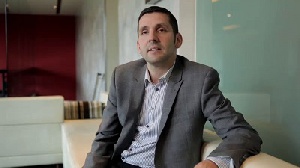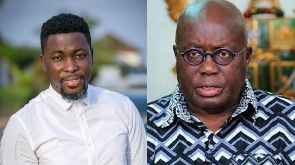- Home - News
- TWI News | TV
- Polls
- Year In Review
- News Archive
- Crime & Punishment
- Politics
- Regional
- Editorial
- Health
- Ghanaians Abroad
- Tabloid
- Africa
- Religion
- Election 2020
- Coronavirus
- News Videos | TV
- Photo Archives
- News Headlines
- Press Release
Business News of Tuesday, 22 March 2016
Source: GNA
14 per cent Ghanaians are satisfied with mobile money
Findings presented by Ericsson, a global kingpin in communications technology and services has indicated that about 14 per cent of Ghanaians who use mobile money personally on their mobile phones are satisfied with the services.
The report also disclosed in Accra that 30 per cent of Ghanaians are currently using the mobile money services? 32 per cent tried to use it? 48 per cent know how it works and 68 per cent are aware of availability of the services.
The report presented insights from a sample of 6,215 respondents from 17 and 59 years representing 150 million people across five countries in SubSaharan Africa Ghana, Nigeria,Uganda, Democratic Republic of Congo, Angola and Uganda.
Mr Patrik Hedlund, Senior Advisor, Ericsson ConsumerLab, said during an international press video conferencing that mobile money could serve as a disadvantage among people in some parts of the world who have no mobile phones.
The report says that 20 per cent of the population of the involved countries uses mobile money services and half of these people are unbanked. Mr Hedlund noted that for this large unbanked proportion of the society, cash is the predominant way of receiving and making payments, as well as savings and borrowing.
“Yet, since more people have mobile phones than bank accounts, mobile financial services offer a stepping stone to financial inclusion,” he said. The report also noted that even as mobile money services become part of daily life for millions in SubSaharan Africa, many potential customers face basic barriers to accessing the services on their own mobile phones.
However, among the lower socioeconomic groups, four out of 10 people do not meet the basic requirements for independent access to mobile money, such as a valid form of Identity Card or ownership of a mobile phone.
It said mobile money services are bridging the gap between the unbanked and banked as more have access to mobile money compared to banking services. According to the report, 63 per cent of the total population is unbanked and 52 per cent of the total population uses mobile money through an agent.
Mr Hedlund said: “Consumers have to make long journeys to reach the location where they can pay their bills and saving money and taking loans also becomes problematic in unbanked Africa, with many hiding cash in their homes and relying on informal lenders who charge high-interest rates.
So,mobile money is really beneficial to them if they can use it.” Mrs Tumi Chamayou, Vice President Strategy and Marketing, Ericsson, Sub-Saharan Africa said about 600 million people were using mobile phones in Africa in 2015? hence a large number are not using mobile money services.
She advised operators of telecommunication companies to ensure that high per cent users of their networks are aware of the mobile money services because the users are responsible for widening and promoting their operations.
“Users are not just users but they help to innovate and develop a system,” she said.











